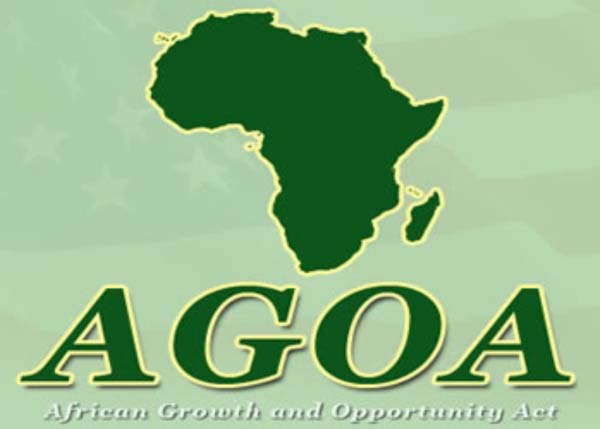
It is said to be a progressive U.S. trade and investment policy towards sub-Saharan Africa, reducing barriers to trade, increasing exports, creating jobs, and expanding opportunity for Africans to build better lives.
Under AGOA, eligible countries can export almost any product to the United States duty-free, nearly 6,400 products from oil to cut flowers.
AGOA eligibility is not automatic and African countries have to meet certain criteria which are reviewed annually and eligibility is either renewed or suspended, based on performance.
The Gambia became eligible for AGOA since 2004 and its status is renewed annually but in spite of the optimism that this elicited at the time, not much has changed.
Since 2004, no single enterprise has consistently been making any significant export from Gambia to America under AGOA.
Under AGOA, The Gambia can export product seafood, garments, handicrafts, specialty foods and cosmetics products, duty-free without any limitation.
Although, the government is eager to increase exports to the U.S. market, entrepreneurs lack the industrial or agro-industrial basis necessary to process the country’s AGOA-eligible products to American standard.
AGOA’s benefits are obviously very meaningful, but actually taking advantage of them is sometimes difficult for small enterprises like those in The Gambia.
Experts said providing practical information on AGOA helps to ensure that everyone can benefit from the trade preferences it offers.
It is in cognizant of this the Gambia Investment and Export promotion Agency (GIEPA) in collaboration with American Chamber of Commerce (AmCHAM) on Tuesday began a two-day workshop to raise the awareness of Gambian entrepreneurs about AGOA and ways and means they can properly utilize the opportunity it presents.
Unattractive packaging hinders
Speaking at the two-day forum, the charge d’ affaires at the United States Embassy in Banjul said primary hurdle in the promotion of Gambian products destined for export to the United States is the absence of attractive packaging and labeling.
For David Greathouse the main reason Gambia could not fully utlise the enormous potentials of AGOA is due not-so-attractive design, packaging and labeling system, a type that is appealing and attractive to American consumers.
The U.S. diplomat the challenge for Gambian entrepreneurs is to be imaginative in what they do and in the design and finishing of their products.
“Competition in the United States market is extremely high and only the finest products will sell well,” Mr Greathouse said.
Expert to help
In order to remedy the situation, an expert has been appointed in the person of Abou Fall to serve as advisor at West Africa Trade Hub.
Given Mr Fall’s expertise and experience working with AGOA Resource Centres throughout the region, he is expected to help improve the quality and finishing of Gambian products to U.S. as well as develop new and attractive products that will help raise The Gambia’s AGOA profile.
Government is not lagging
At the level of the government, the Ministry of Trade and the Gambia Investment and Export Promotion Agency (GIEPA) are also assisting some of the small enterprises in the country to improve their packaging.
The American Chamber of Commerce and the U.S. Embassy in Banjul are also helping to address the issue.
On the side of the embassy, the charge d’ affaires said they are currently recruiting a delegation to Pack Expo, an exhibition of packaging equipment and materials that is to take place in Chicago next month.
“We hope that with the government’s encouragement, competent Gambian private sector operators will consider investing in modern, multi-purpose packaging facilities to serve The Gambia’s export initiative,” the US diplomat said.
Mr Greathouse commended the Ministry of Trade for collaborating with the U.S. Embassy in their common desire to promote trade and investment between The Gambia and the United States.
He said the U.S. Embassy will continue to work with agencies such as GIEPA,AmCham and all other agencies seeking to promote and consolidate the business ties between The Gambia and the United States.
The U.S. diplomat pointed out that the Washington government is currently reviewing the AGOA program to enable eligible countries to take full advantage of its benefits.
The review is expected to take the needs of smaller entrepreneurs like those in Gambia to enable them to export to America big time.
Until that is done and until Gambian entrepreneurs complement the support from the government and partners like AmCham by investing on their production standards, they will not be able to fully explore the huge American market and AGOA will not be anything beneficial to The Gambia.

